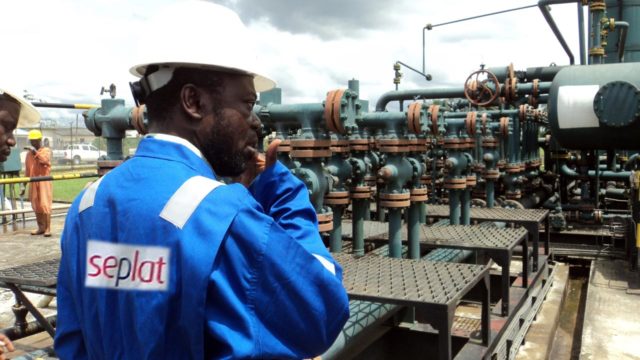ExxonMobil Corporation has disclosed the acquisition of its equity interest in its shallow-water business, Mobil Producing Nigeria Unlimited (MPNU), to Seplat Energy, a Nigerian independent oil and gas company, through its wholly-owned subsidiary, Seplat Energy Offshore Limited.
Although the deal is subject to Ministerial Consent and other required regulatory approvals, Seplat is poised to announce the agreement to acquire the entire share capital of Mobil to the investing public both in the Nigerian Exchange Limited (NGX) and the London Stock Exchange (LSE).
The deal was, however, said to have been closed at $1.283 billion. In addition, a $300 million contingent consideration is also part of considerations.
Commenting on the transaction, the President, ExxonMobil Upstream Oil and Gas, Liam Mallon said, “This sale will allow us to prioritise competitively advantaged investments in our strategic assets, and it supports the Nigerian government’s efforts to grow its oil and gas operations.
“We value the relationships we have spent decades building with the government and people of Nigeria, which will continue as we maximise the value from our deepwater operations.”
What the acquisition of Mobil means
- The transaction, according to statement, encompasses the acquisition of the entire offshore shallow water business of ExxonMobil in Nigeria, which it said is an established, high-quality operation with a highly skilled local operating team and a track record of safe operations.
- The transaction, it said, would create one of the largest independent energy companies on both the NGX and LSE and bolster Seplat Energy’s ability to drive increased growth, profitability and overall stakeholder prosperity. The deal would deliver 186 per cent increase in production from 51,000 bpd to 146,000 bpd or 170 per cent increase in 2P liquids reserves, from 241 MMbbl to 650 MMbbl.
- In addition, it was expected to deliver a 14 per cent increase in 2P gas reserves from 1,501 Bscf to 1,712 Bscf, plus significant undeveloped gas potential of 2,910 Bscf (JV: 7,275 Bscf).
- Furthermore, it was expected to increase by 89 per cent, the total 2P reserves from 499 MMboe to 945 MMboe and includes offshore fields with dedicated, MPNU-operated export routes offering enhanced security and reliability.













